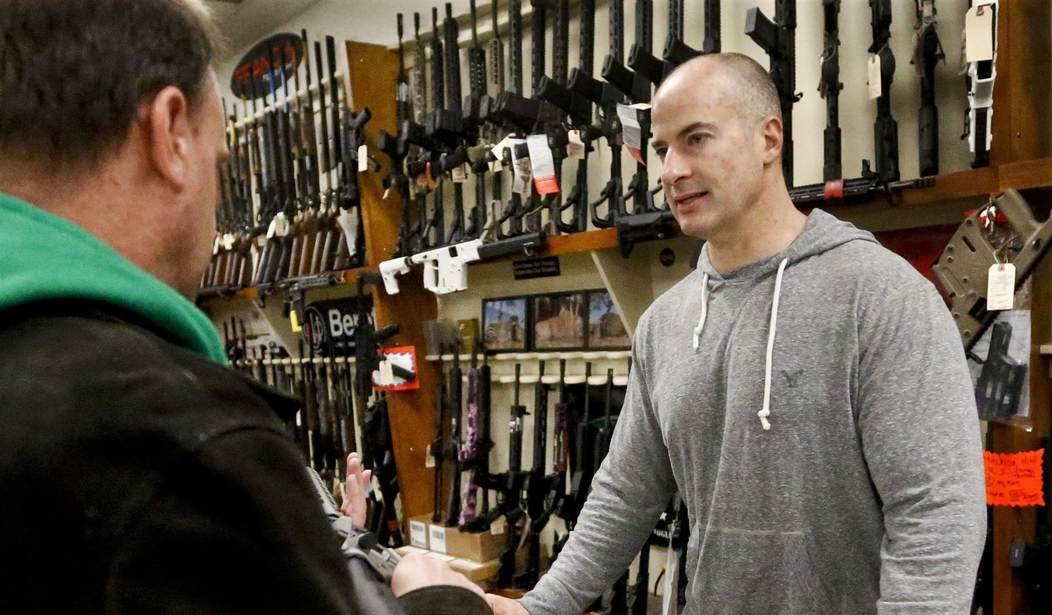For the past decade, Colorado Democrats have enacted a number of restrictions on legal gun owners in the state, starting with a ban on “large capacity” magazines and the implementation of “universal background checks” in 2013. Lawmakers followed up over the years by imposing a “red flag” law and gutting the state’s firearm preemption statute, allowing localities to impose their own gun control measures even more restrictive than those at the state level.
All of this was done in the name of public safety, but a not-so-funny thing has been happening with Colorado’s crime rates over the last ten years; with every new gun control law enacted, violent crime just keeps getting worse.
In 2013 there were 175 homicides in Colorado, 3,150 robberies, and 9,712 aggravated assaults. Fast forward to 2022 and the statistics are worse in every category; 301 homicides, 3,939 robberies, and a staggering 18,524 aggravated assaults (of which less than 50% ended in an arrest), according to the state’s own crime statistics. This isn’t an artifact of the COVID shutdowns or 2020 riots either. The state’s crime rate started climbing in 2014 and has only seen one year since where there was a slight decline (which was more than offset the following year). By every metric Colorado has become a less safe place as anti-gun lawmakers have made peaceable gun owners the primary target of their legislation over the past decade, and sadly the worst is likely still to come with Democrats insistent that their election gains last November were a mandate for more gun control.
Colorado voters delivered the party historic majorities in the state Senate and House of Representatives this past November, with some key races being run on explicitly pro-gun control promises. A poll commissioned by Giffords, a gun control advocacy organization, likewise indicated gun violence was top of mind for many voters as they cast their ballots — and that was before the horror of the latest mass shooting in the state.
No legislation has been formally introduced, but members have been pitching general ideas: strengthening the extreme risk protection order law; wait times on purchases; age limits; outright bans on certain types of firearms. They’ve also formed a gun violence prevention caucus with more than 20 members.
In 2021 alone, more than 1,000 Coloradans died from gun violence, Senate President Steve Fenberg, a Democrat from Boulder, said Monday in remarks acknowledging the start of the legislative session.
“We owe it to each of those victims, and their families, to do more,” Fenberg said. “Yes, it’s a mental health issue. But it’s also an economic justice issue, and a public safety issue, and an education issue. And yes, it is also a gun issue.”
It could be the biggest swing at control measures since 2021’s spate of new gun laws, including allowing local regulation of firearms and the creation of the Office of Gun Violence Prevention, or 2019’s passage of the initial extreme risk protection order law.
State Rep. Meg Froelich, a Greenwood Village Democrat who co-founded the caucus, said the goal is to be intentional and strategic about gun law reforms — and take the burden off gun violence survivors and the families of victims from lobbying for changes. And while mass shootings draw national attention, she said the caucus also wants to curtail smaller-scale shootings and suicides.
“It’s not about cutting off access (to guns) completely,” Froelich said of the caucus’ goals. “We’re a Western state, and there’s a culture around outdoor activity and there’s plenty of responsible gun owners in Colorado. There are just these deadly combinations when we think access is just too easy.”
If you notice, there’s a common theme to the ideas that are currently floating around the state capitol; going after legal gun owners and making it more difficult for them to exercise a constitutionally-protected right. In fact, the more Colorado’s gun control laws fail to thwart violent criminals, the more insistent the calls for more restrictions on non-violent gun owners.
At some point maybe these anti-gun officials (and voters) will realize the fundamental and authoritarian error of their ways, but its probably not going to happen before the end of this year’s legislative session, and Second Amendment organizations are already gearing up for another round of legal challenges.
Taylor Rhodes, executive director of Rocky Mountain Gun Owners, sees those goals as infringements of constitutional rights. But he also notes the makeup of state government — a Democratic supermajority in the House, and a near supermajority in the Senate — and says gun rights advocates need to be “realistic” about what can be done in the Capitol.
“Our legal team is on notice and we are actively getting the lawsuit printers going,” he said. “They are warming up.”
You can add Firearms Policy Coalition, Second Amendment Foundation, Gun Owners of America, the National Rifle Association, and perhaps even the National Shooting Sports Foundation to the list of organizations that are likely to file suit against any civil rights abuses that are signed into law by Gov. Jared Polis this year. There’s no shortage of groups ready to defend the Second Amendment rights of Coloradans, but unfortunately we’re probably going to see more than one law that needs to be challenged in court. House Speaker Julie McCluskey has vowed to raise the age to purchase a firearm from 18 to 21 and to add waiting periods to gun sales, while Senate President Steve Fenberg spoke of expanding the state’s “red flag” law in his opening remarks of the legislative session. Given the current push to ban so-called assault weapons in blue states like Illinois and Washington, a similar ban in Colorado isn’t out of the question either.
As long as the gun control lobby and the state’s Democratic majorities are joined at the hip, Colorado’s public safety efforts are going to continue to minimize the role of violent offenders at the expense of responsible gun owners. These policies are going to have the same effect as the rest of the state’s anti-gun efforts over the past ten years; none at all. That is, if they’re even allowed to take effect in the first place without the courts stepping in to intervene.









